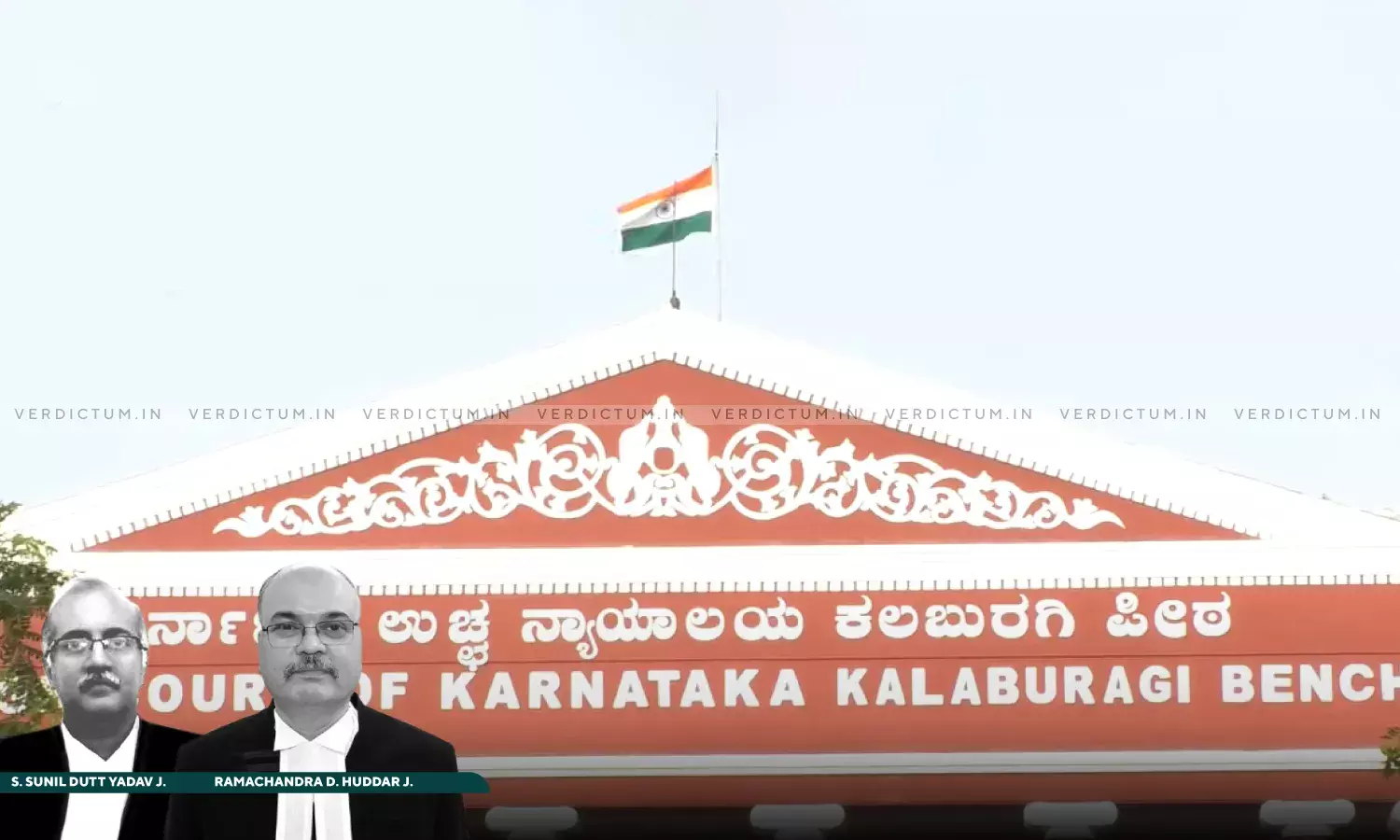Accused Need Not Prove Defence; His Exercise Of Right To Remain Silent Is Sufficient Where Prosecution Is Unable To Prove Case: Karnataka HC In Rape Case
The Karnataka High Court held that there is no duty of the accused to prove a defence and his exercise of his right to remain silent would be sufficient where the prosecution itself is unable to prove its case.
The Kalaburagi Bench held thus in a Criminal Appeal filed by the rape accused seeking to set aside the Judgment of conviction and Order of sentence by which he was convicted.
A Division Bench of Justice S. Sunil Dutt Yadav and Justice Ramachandra D. Huddar observed, “There is no corresponding obligation on the accused to prove that there was consent which would result in fastening an onerous burden on the accused to prove that he was innocent which is contrary to the premise of presumption of innocence of the accused. There is no duty of the accused to prove a defence and his exercise of his right to remain silent would be sufficient where the prosecution itself is unable to prove its case.”
The Bench said that for invocation of presumption under Section 114A of the Indian Evidence Act, 1872 (IEA), it is necessary that the offender and circumstances must fall within four corners of Section 376(2) of the Indian Penal Code (IPC) as it stood prior to its substitution by Act 13 of 2013.
Advocate R.S. Lagali appeared on behalf of the Appellant/accused while Addl. SPP Siddaling P. Patil appeared on behalf of the Respondent/State.
In this case, as per the prosecution, in 2009, when the complainant and other family members were sleeping in the farmhouse, the accused (Appellant) allegedly trespassed, threatened the victim of doing away with her life if she opened her mouth, kidnapped her on a motor-cycle, took her to the farmhouse of another person, and confined her for around 5 days. It was alleged that during this period, he forcibly raped her while threatening her with the knowledge that she was a minor and belonged to the Scheduled Caste.
Hence, the case was registered against the accused for the offences punishable under Sections 447, 366(A), 376, 443, and 506 of IPC and Section 3(2)(v) of the SC/ST Prevention of Atrocities Act, 1989. The Trial Court convicted him and sentenced him to undergo rigorous imprisonment of ten years along with a fine of Rs. 1 lakh. He was awarded punishment under other provisions accordingly. Challenging his conviction, he was before the High Court.
The High Court in view of the facts and circumstances of the case, noted, “The question of lack of consent which is necessary for the offence of rape itself is in serious doubt. If that were to be so, it can be stated that the prosecution has not proved the case beyond reasonable doubt.”
The Court added that, once it is concluded that the alleged offence does not qualify under un-amended Section 375-sixthly, it is to be examined as to whether Section 375-secondly which states that “A man is said to commit rape who, has sexual intercourse with a woman without her consent” is applicable in the case and under Section 375-thirdly, it would be possible to construe absence of consent where consent has been obtained by putting her in fear of death or hurt.
“In the present case, the stand in the complaint that she was kidnapped has been disbelieved by virtue of the discussion supra at Paras 56 to 58. As regards her illegal confinement in the house of C.W.13, C.W.13 - Smt. Boramma is not examined. The injury on the victim's body being insignificant and the absence of injury on the accused if taken into consideration, with other circumstances, the version that her consent was obtained by putting her into fear of death or hurt becomes doubtful”, it further said.
The Court remarked that, it is not the case of the prosecution that offence falls within the category of Section 376(2) and if that were to be so, the absence of presumption under Section 114A of IEA would lead to placing the burden on the prosecution to establish absence of consent which is necessary to prove the offence of rape under Section 375 of IPC.
“Once such burden is fastened on the prosecution and the prosecution fails to discharge such burden, the case of the prosecution would fall on its own weight. … Once such burden of the prosecution has not been discharged, then the accused is entitled for acquittal as a result of the prosecution failing to discharge its burden beyond reasonable doubt. The right to remain silent would obviate the necessity of the accused to take a positive stand that there was consent. There was no legal obligation to set up the defence of consent by the accused”, it added.
The Court, therefore, concluded that even without accused taking a stand regarding consent, the inherent contradictions regarding absence of consent that is required to be asserted by the prosecution may result in failure of the case of the prosecution to prove beyond reasonable doubt, leading to accused getting the benefit of doubt.
Accordingly, the High Court allowed the Appeal, set aside the impugned Judgment, and acquitted the accused.
Cause Title- Khaja Hussain v. The State of Karnataka (Neutral Citation: 2024:KHC-K:8098-DB)



